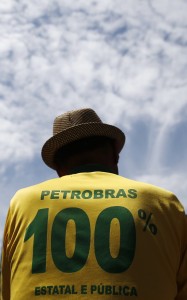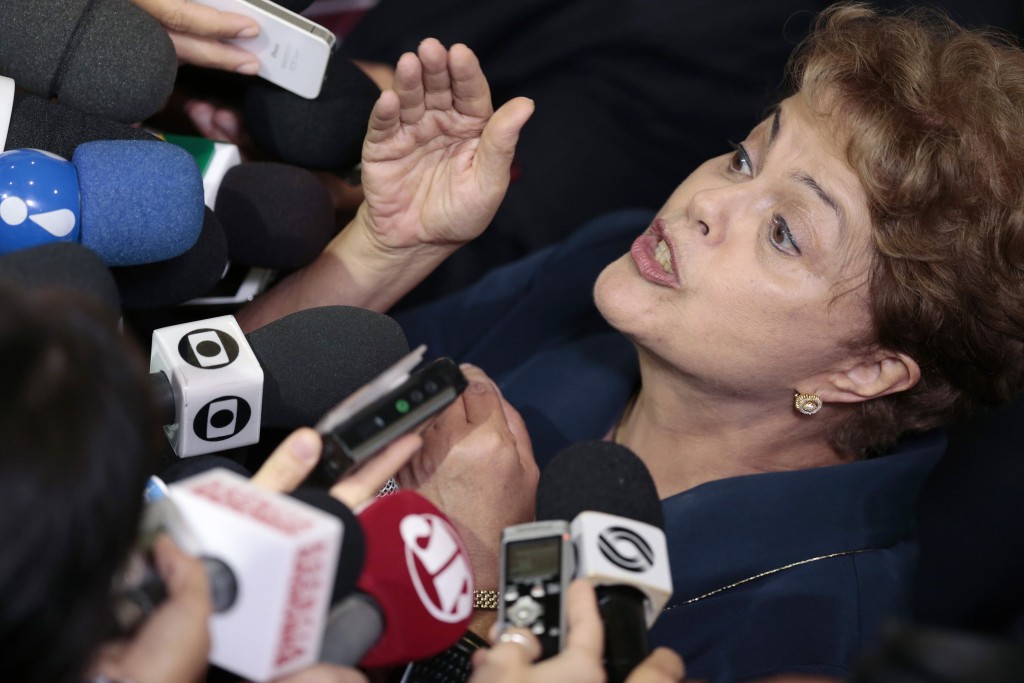Petrobras scandal continues to overshadow Brazilian President’s second term
Just three months into her second term in office, after securing a close-fought victory over rival Aécio Neves, Brazil’s President Dilma Rousseff is already on the ropes.
As if the widening Petrobras probe dragging lawmakers from all sides under investigation, a precarious financial position, a legislative rebellion in her own coalition and Brazil’s stuttering economy wasn’t enough, Rousseff now has calls for her impeachment growing.
The Petrobras probe, in some corners estimated to involve a huge US$4 billion of cashflow stemming from kickbacks and bribes, is the main source of the calls. But water shortages, power cuts, unhappy industry and government plans to impose austerity measures are also infuriating everyday Brazilians.
This is evidenced by her declining approval ratings, which have plummeted of late. Last month, in a Datafolha poll, she was rated “good” or “very good” by just 23 percent of respondents, her lowest ever score and the worst for a president since Fernando Henrique Cardoso in 1999.
The Petrobras scandal shook Brazil’s political class again late Tuesday night when it emerged that the country’s top prosecutor Rodrigo Janot intends to open investigations into 54 people, with nearly all of them thought to be politicians from across the aisles of Congress. The names are yet to officially emerge.
Dilma’s name is not thought to be on that list and most likely it would’ve been leaked by now if it were so.
But she is inextricably linked to the state-run oil company and the probe, as she was chair of the board during the time much of the malpractice is thought to have taken place. Most people in the Datafolha poll believed she knew about the wrongdoing, despite her public denials.
 Another route to impeachment could be the finding of a direct link to the scandal — for example, if evidence is found of campaign funds stemming from illegal activity at Petrobras.
Another route to impeachment could be the finding of a direct link to the scandal — for example, if evidence is found of campaign funds stemming from illegal activity at Petrobras.
Another route to impeachment could be the finding of a direct link to the scandal — for example, if evidence is found of campaign funds stemming from illegal activity at Petrobras.
Some analysts certainly think the probe could spread to her. The Eurasia group emphasized in a recent analyst’s note that investigations are likely to stretch way into 2016, meaning the scandal — much like the infamous mensalão probe — will cast a dark shadow long into the president’s four-year term.
The analysts also noted that the public prosecutor’s office is “constitutionally independent” from the president, and will “pursue indictments based on the evidence it collects, not political considerations.”
The impeachment calls once came just from politicians, but now, according to reports in Pagina/12, a protest demanding the president be impeached will actually hit the streets on March 15.
One study by the consulting firm Bites, quoted in Brazilian weekly Epoca this week, said that after analyzing 37 Facebook pages supporting the event, they estimate that up to one million people may turn out. The Workers’ Party (PT), in response, have called for their own rally “For Peace and Democracy” for March 13 to defend Dilma.
It promises to be an explosive week in Brazilian politics, but it won’t solve the president’s problems.
The bumps in the road ahead for Rousseff are getting bigger — and more difficult to navigate around.
@urlgoeshere
Originally published in the Buenos Aires Herald, on Thursday, March 5, 2015.
Link: http://www.buenosairesherald.com/article/183548/impeachment-rumblings-against-dilma-grow-louder.

